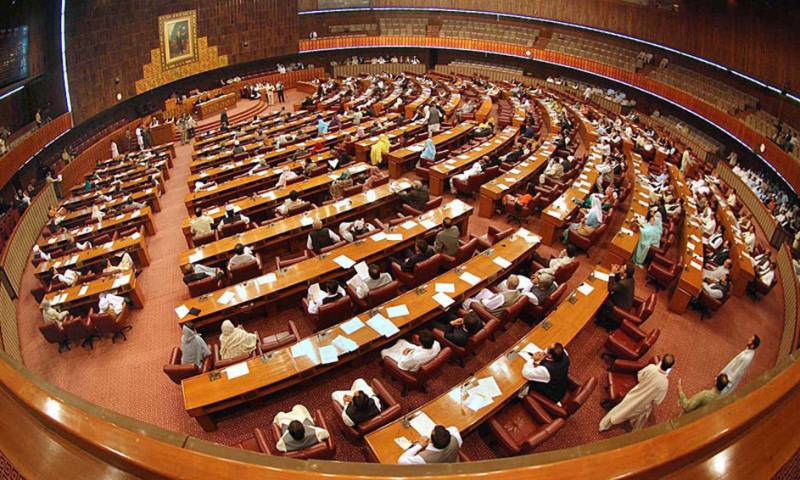ISLAMABAD - The NA Committee on power has Thursday passed the Nepra Amendment Bill 2020, empowering the federal government to impose up to Rs1.40 per unit surcharges on power consumers.
National Assembly Standing Committee on Power, which met with Chaudhry Salik Hussain in chair, has passed the bill “The Regulation of Generation, Transmission and Distribution of Electric Power (Amendment) Bill, 2020, with five members voting in favour while four opposing it.
Five members of committee, who voted in favour of the bill, included Sher Akbar, Amir Dogar, Saif-ur-Rehman, Lal Chand Engineer and Sabir Hussain Qaim Khani. However, Shazia Murree, Saira Bano, Ghulam Mustafa Shah and Riaz Hussain Pirzada voted against the bill. It is worth mentioning here that in January this year the government had increased base electricity tariff by Rs 1.90 per unit.
The NEPRA Amendment Bill 2020 will give sweeping powers to the government to impose surcharges on the power consumers to recover the cost of inefficiency and power theft in power distribution companies.
The power consumers are currently paying three types of surcharges which included tariff rationalization surcharge, financial cost surcharge and Neelum Jhelum surcharge in additional to collecting heavy taxes from the consumers.
According to power division, the government would be able to impose surcharges on the power consumers that would amount to 10 per cent of electricity cost.
The members who voted against the bill opposed giving sweeping powers to the government to impose surcharges on the consumers.
Secretary Power Ali Raza Bhutta said that government seeks powers to impose surcharge on power consumers by amending Nepra Act. He said that these surcharges will be spent on electricity purchase payments. Maximum surcharges will be levied up to 10% of electricity cost to meet the required revenue, Bhutta said.
Shazia Murree said that power people are already facing a heavy burden. I do not agree with such surcharges, she said, adding that consumers should not be punished due to weaknesses of power sector.
Power Division Minister Omar Ayub said that proceeds from power surcharges will also be spent on power projects. These surcharges will be levied only if approved by the Federal Cabinet, he said.
Syed Ghulam Mustafa Shah, Member Committee, said: “Why there is a need for more surcharges as the electricity is already expensive.”
Saira Bano, member committee said, “Why don’t you tell directly that imposition of surcharges is a condition of IMF?. I am also a mother. I know how expensive electricity is. I will bear the pain myself but I will put my child in the air conditioner,” she added.
Amir Dogar, member committee, said that maximum surcharges will be up to Rs1.40 per unit. He added that electricity is already very expensive.
Secretary Finance Kamran Afzal said that the government shares its reform program with the IMF, adding that there would be no surcharges on small power consumers. He said that circular debt had reached Rs 2.3 trillion mark. If we do not resolve these issues today, the economy will sink tomorrow, he said.
Power division minister blamed the previous governments for expensive electricity generation. In the previous meetings, taking a tough stance on the government plan to impose additional surcharges on power consumers, the committee had clearly stated that the surcharges should not surpass 10pc of base tariff and should be utilised only for funding of the projects of strategic importance and not for paying off the future circular debt.
Secretary power said that government would supply 1400 MW more power from the national grid to K Electric in the next two years.
Chairman Committee raised question regarding new connections by IESCO. He said that IESCO had not shared any plan in this regard.
CEO IESCO said they had no objection over new electricity connections. He added that High Court had barred to give connections to illegal societies.
He said that the Supreme Court had banned the connection of electricity in the vicinity of Bani Gala. CDA is also an obstacle for power connections, he said. The committee called the CDA chairman in next meeting.






